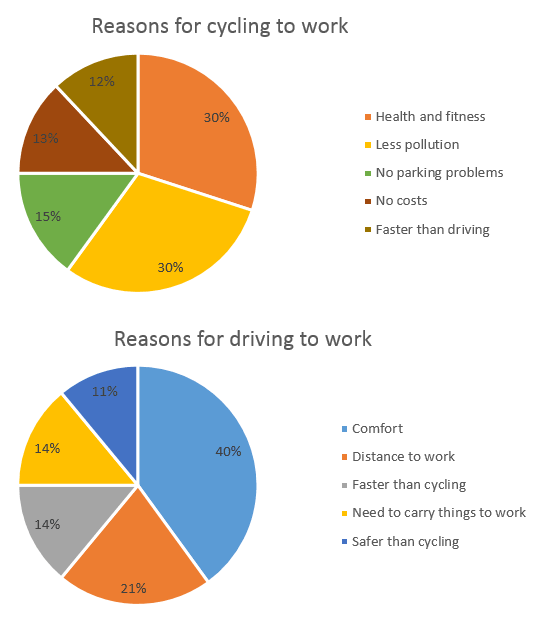You should spend about 20 minutes on this task.
The charts below show the reasons why people travel to work by bicycle or by car. Summarise the information by selecting and reporting the main features, and make comparisons where relevant.
Write at least 150 words.

Sample Answer
The first chart shows the reasons why some people in the UK prefer to cycle to work. Conversely, the second chart gives reasons for those who choose to go to work by car.
The highest percentage of those who favour cycling say that this is because riding a bicycle to work is healthier than driving. 30% of them gave this as a reason. The same amount of people, 30% say that they cycle to work because it causes less pollution. 13% of people cycle to work because it is cheaper than driving. Surprisingly, a similar amount of people said that they cycled to work because it is faster than travelling by car.
In contrast to this, the percentage who prefer to travel by car because it is more comfortable is 40%. The two least important reasons for going to work by car, with 14% and 11% respectively, is that people need to carry things to work and that it is safer than cycling to work. Finally, 16% say they prefer driving because it is faster than cycling. This contrasts with the cyclists who ride to work because it is faster than driving.
In general, it seems that the majority of people who cycle to work do this for health and environmental reasons. By contrast, those who travel by car want to have a more comfortable journey over longer distances.
(229 words)
